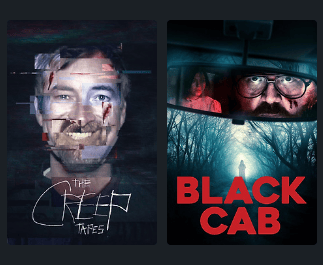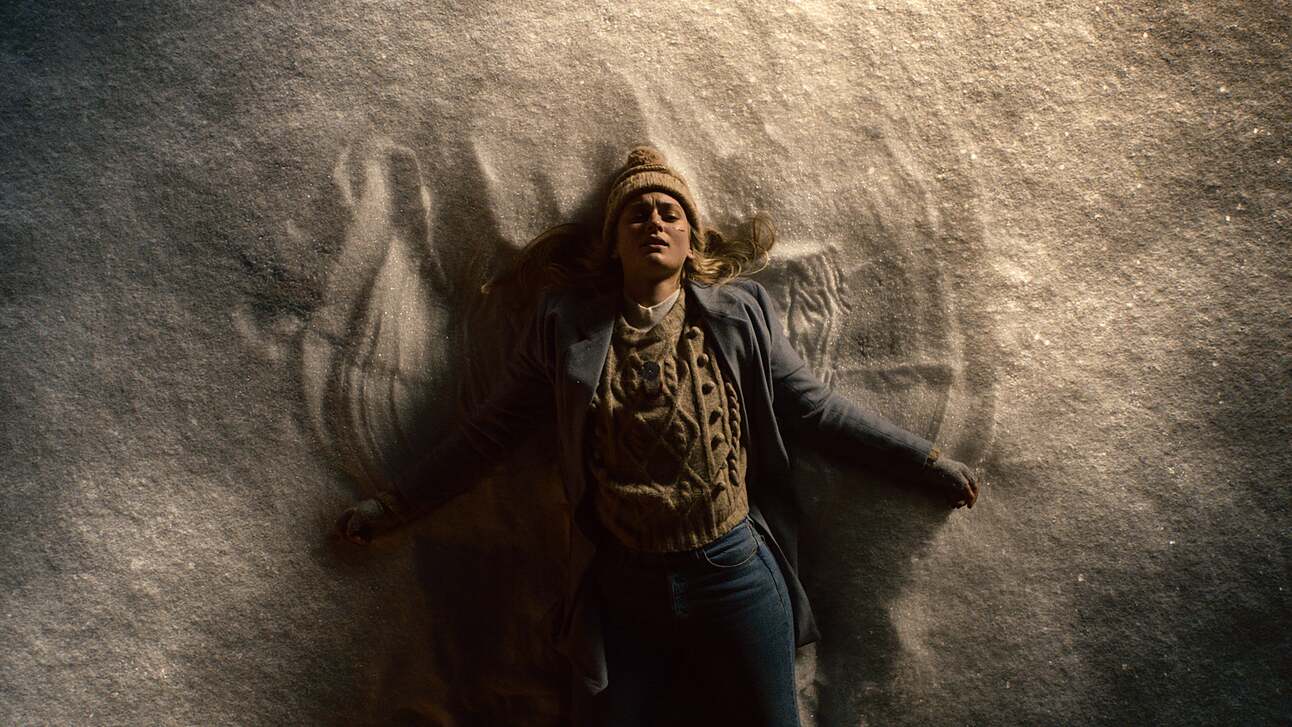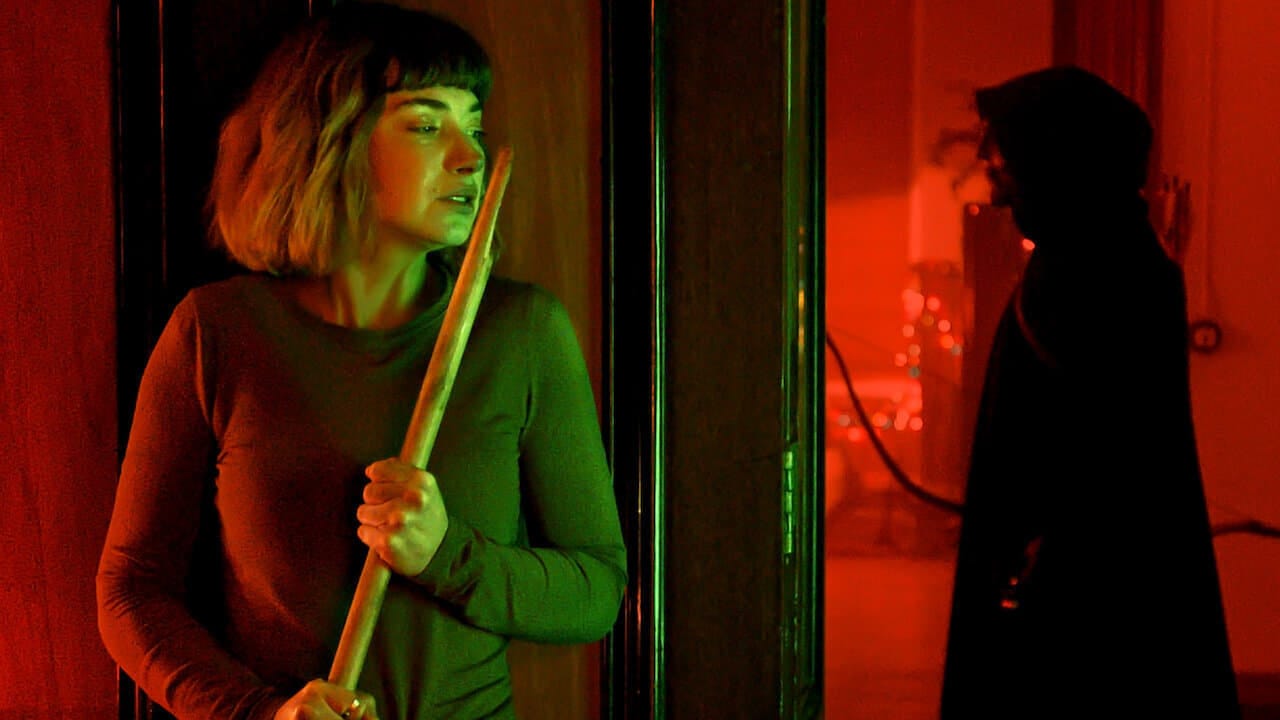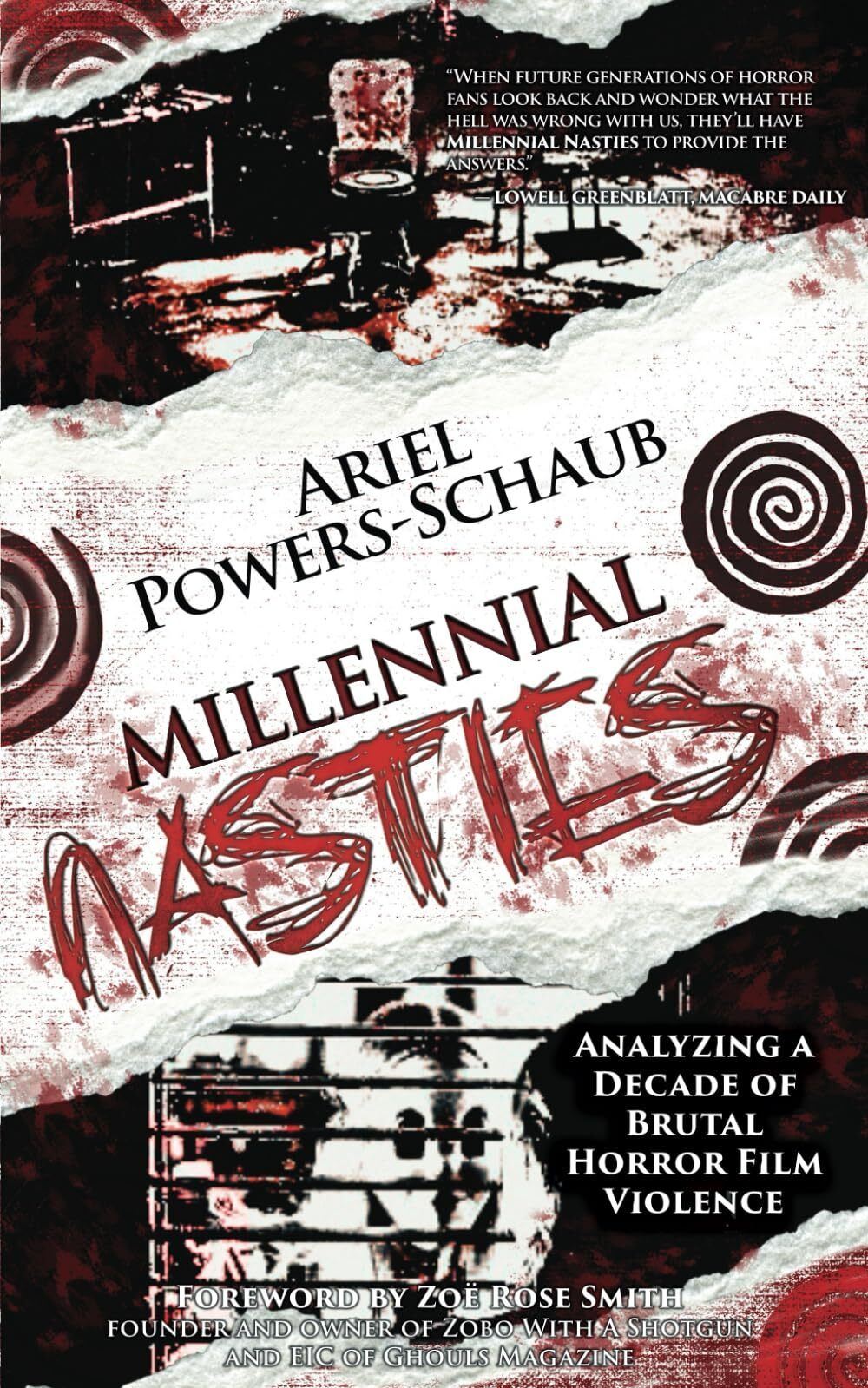The Horrorverse Newsletter is read by over 2,600 people. Do you want to reach them with your latest news, giveaways, releases, subscriptions and more? We have both partnership and sponsorship opportunities available. ✉️ [email protected] + [email protected]

Bee Delores | Bluesky | Instagram | Letterboxd
Revenge horror holds a very special place in my heart. The heart-pounding, flesh-tearing subgenre often goes for real sucker punches that leave you gasping for breath. In light of recent events, I've found myself turning to woman-led revenge films as a cathartic release - a way to exorcise my anger, disappointment, and sadness. With films like Coralie Fargeat's Revenge and Abel Ferrara's Ms .45, the viewing experience invites you to relish in the bloodthirsty rage that seeps from the lead character's pores and find a way through and out of real-life horrors.
Whether it's murder, assault, or something else entirely, the impetus for retribution trips explosive plot points. A character must endure a literal and/or metaphorical beating that then drives them to the edge of madness. They discover a strength they never knew they possessed, and what transpires next emerges as a glorious stack of bodies and blood-spurting extremities. The genre's best (as you'll read about in this week's newsletter) boldly pushes boundaries, keeps you on the edge of your seat, and forces you to confront the moral dilemma of confronting violence with more violence.
Uncorking collective anxieties and fears over sweeping injustices, revenge films give license to live vicariously through onscreen events and enjoy the purifying experience that occurs with deeply satisfying vengeance. As you peruse Horrorverse this week, may you uncover that emotional spigot to relieve your worries about the future - we all could use a little comfort these days.

By Brett Petersel | Bluesky | Instagram | Letterboxd | X
We have a first look at the new poster for Dexter: Original Sin, which begins streaming on Paramount+ on December 13th.
In one of the funniest things to happen this week, Mattel is being sued because the URL on one of their Wicked dolls/figures links to a pornographic website, not the film’s official website.
Popeye the Slayer Man's first trailer is now available. Stock up on your spinach and check it out on YouTube.
Sony Pictures gives us a peek at the first poster for 28 Years Later.

The Best Revenge Films
We love ourselves a revenge flick, especially ones that take it to a whole new level. Check out our list on Letterboxd featuring the best revenge films.

Bee Delores | Bluesky | Instagram | Letterboxd and Brett Petersel | Bluesky | Instagram | Letterboxd | X

Co-writer/director Patrick Brice and co-writer/star Mark Duplass created a cult phenomenon with their two films Creep and Creep 2. A new villainous weirdo broke through the static of found footage, endearing himself to audiences with his boyish charms and slightly aloof nature. While we wait ever so patiently for a third film installment, we’ve got The Creep Tapes TV series to tide us over. Across six episodes, the first season provides a necessary salve for these troubling times and delivers increasingly absurd scenarios in which Duplass’ manic character shifts personalities depending on the situation. Each is as wonderfully bizarre as the last. [Read Bee's Review]
Bruce Goodison's Black Cab unexpectedly bends genres, to mixed results. The film tells the tale about a young couple kidnapped by an unhinged cabbie (Nick Frost). As the hours tick away, Frost's character drives them out to a secluded hotel. Along the way, Goodison introduces a harrowing tale about a woman killed and her ghost that haunts a trip of highway. Where the film excels with its thriller elements, the inclusion of the supernatural drags the story down - resulting in a half-bag of good, rich storytelling. Despite all that, there's plenty of nail-biting tension and mood to get you by. [written by Bee]

Bee Delores | Bluesky | Instagram | Letterboxd
‘Black Christmas’ 2019 is a world-burning triumph.
This deep-dive essay originally appeared on B-Sides & Badlands
1974’s Black Christmas made a political statement. Released a year after Roe v. Wade, the film’s lead Jess Bradford (Olivia Hussey) confronts not only her domineering boyfriend – the pro-choice subplot bubbles right on the surface – but a killer whose palpable disgust for and hatred of women smothers the screen. “Its granular, POV framework splinters the onscreen perspective between that of the viscously-provocative villain, only known as ‘The Moaner’ to our house of heroines, and that of a close-knit group of sorority girls, who were coming of age only a decade after the Civil Rights Act of 1964 (and just a year after Roe v Wade). It’s a raw and unnerving juxtaposition of one white man’s rage set against a backdrop of women’s continuing struggle to break free of the patriarchy and come to understand and revel in their burgeoning sexuality,” reads the crux of our review last winter.
Film critic/writer April Wolfe and director Sophia Takal spin a barbaric, but delightfully empowering, contemporary yarn which takes direct cues from Bob Clark’s original while also unraveling a wildly bold and pointed conversation around date rape culture on college campuses. 2019’s Black Christmas punches harder with riskier thematic beats, pulling specific talking points from the #MeToo movement (such as “Not All Men!”), and slithers underneath the fingernails of toxic white men everywhere with delicious comeuppance. It’s the kind of soap-box treatment that gives women even more clearance and agency to tell their own stories on their own time. With a PG-13 rating, the 90-minute joyride navigates around gore-less sequences with shock, awe, and looming dread.

The stage is set in the spirit of the original: Hawthorne College is shutting down for holiday break, and as attentions are drawn to decorations, family affairs, and the upcoming talent show, sorority girls start to go missing. Yet unlike both predecessors, the 1974 landmark and 2006’s grotesque and soulless remake, 2019’s iteration highlights a growing awareness of something amiss almost from the start. Riley, portrayed with great nuance by Imogen Poots (Green Room), contends with her brutal sexual assault and its lingering effects that have caused her to retreat into her shell. Her entire world has skewed, everything always feeling a little off, and the sisterhood brings her comfort, stability, warmth, and, more importantly, a warrior-like strength in the finale. Aleyse Shannon commands the screen as the head-strong, unapologetically out-spoken activist named Kris, embodying all sociopolitical forward motion, and Lily Donoghue’s Marty perches on the other end of the spectrum, unaware of the harm in being silent and naive.
Takal and Wolfe color in such extremes that are irrefutably ripped from real life. “The Brett Kavanaugh hearings had just happened, and I think I was really struck by how emotional he was, how aggrieved he was,” Takal told The New York Times of drawing upon current events. The rage, the loathing, and the hyper-masculinity are sketched in bright, blinding shades through venomous diatribes of the fraternity DKO and its many misogynistic players – thus holding up a shiny mirror to the nature of our reality. It’s an elevated world in many regards, but it also feels grounded and honest and depicts what it’s like to be a woman wading through hot, black tar.
The third act evokes the omnipresent darkness of the patriarchy to a suffocating level, as more and more masked maniacs pop up like a game of Whac-A-Mole. Takal explained this creative decision: “All of these men were being exposed for all the terrible things they had done, like Louis C.K. or Mark Halperin, but then they were coming back into the public sphere. I was like, what’s happening? We felt like we had had a victory where women had finally found their voices, and then these men kept popping back up.”

When it is revealed DKO’s men have all been possessed by the frat founder Caleb Hawthorne – whose porcelain bust oozes literal toxic masculinity, sealing their Alpha Male instincts – the stakes could not be higher. Riley once again comes face-to-face with her abuser named Brian Huntley, former DKO president, and in an especially nail-biting, perhaps traumatizing, combat scene, the once-doggedly reserved victim repurposes her pain into a moment of sheer triumph. The cuts between the present and her reliving the assault are particularly emotional – but the end result is worth it. “You messed with the wrong sisters!” a bow-and-arrow-wielding Kris proclaims moments before, flanked by a band of other women, who help exact a cruel and just punishment.
“A supernatural element — the college’s founder dabbled in the dark arts — undermines the movie’s grounding in the here and now,” The New York Times reporter Ben Kenigsberg noted in his film review. Well, that’s not totally accurate – there’s actual truth to the concept.
Here’s a story.
Situated upon a secluded hilltop in Gambier, Ohio, Kenyon College houses an unseen malevolence dating back to 1824. Its founder and first president Philander Chase reportedly performed satanic rituals using religious texts, and even in his institute dedication, he wormed references to burnings and sacrifices into misquoted scriptures. Possessing a tyrannical leadership style, he soon clashed with faculty, other clergy, and the board of trustees, and he resigned from the position on September 9, 1831. [story tip courtesy of colleague and friend Jonathan Keefe]
Chase was not only later excommunicated but was condemned by the Church. In rooting through online archives, newspapers, and various library collections, Chase’s vile nature and upholding of the patriarchy is quite evident. In “Bishop Chase’s Defence of Himself, Against the Late Conspiracy of Gambier, Ohio,” a collection of personal letters to his friends, via Harvard College Library, the beleaguered bishop aggravates his motives further. “Kenyon College is like other colleges in some respects, and unlike all in many other respects. One fundamental principle in which it differs from all others, is, that the whole institution is Patriarchal,” he writes in a letter dated December 5, 1831. “Like Abraham on the plain of Mamre, it hath pitched its tent under the trees of Gambier Hill, it hath its flocks and its herds, and its different families of Teachers, Scholars, Mechanics, and Labourers; all united under one head, pursuing one common interest and receiving their maintenance and food from one common source, the funds and farms of the college.”
He continues, “This Patriarchal establishment must, it is obvious, have a Father, and that Father must be clothed with authority to seek and effect the common good. Deprive him of this, and the family must come to ruin. Guard his power against abuses, but for the common interest, preserve it entire.”
“Circular of the Professors,” issued by college committee members B.P. Aydellot, J.P. Bausman, J.B. Thomas, and J.N.O. Bailhache, addresses many of Chase’s claims for more power. “….it clogs the operations of college government, depriving it of the consistency and regularity which are so essential to its efficiency – that all which is said in your letter about our possible interference with your Episcopal office is really absurd – and that your allusions to ‘patriarchal’ authority, ‘Abraham,’ ‘the oaks of Mamre’ &c. are mal a propos and delusive.” [July 25, 1931]
Across 60 pages of letters, Chase meanders through retaliatory accusations, and it’s nothing more than paranoia and shifting blame to whoever crosses his path. Such toxic, deeply-rooted masculinity and the hunger to feed it is eerily similar to Black Christmas‘ Professor Gelson (Cary Elwes), whose endearing smile guards an ancient, untamed evil that defies logic or comprehension. Many believe Kenyon College is the location of The Gates of Hell and maybe for good reason – historically, there has been an excessive amount of fires on the property. The most infamous occurrence took place on February 27, 1949, when a blaze ripped through the Old Kenyon dormitory, killing nine students. Over the past 195 years, there have been countless paranormal reports and ghost sightings, and many point to the tragic death of Stuart Pierson, who died while rushing a fraternity, as the catalyst for the activity.
In 1906, Kenyon College historian George Franklin Smythe wrote a song called “Philander Chase” to memorialize Chase’s work. Here is the opening stanza:
The first of Kenyon’s goodly race
Was that great man Philander Chase;
He climbed the Hill and said a prayer,
And founded Kenyon College there.
He climbed the Hill and said a prayer,
And founded Kenyon College there.
And the final stanza:
And thus he worked with all his might
For Kenyon College, day and night;
And Kenyon’s heart still holds a place
Of love for Old Philander Chase.
And Kenyon’s heart still holds a place
Of love for Old Philander Chase.
Women were not permitted to attend Kenyon College until 1969. On the 25th anniversary, Liz Forman, assistant director of admissions, and her daughter Helen Forman, former Kenyon bookstore clerk, reworked the lyrics into “Philander Chase: The Sequel.” Here’s an excerpt:
The first of Kenyon’s female line
Arrived in fall of sixty-nine;
They climbed the hill and postured there;
Of them the men were well aware.
They climbed the hill and postured there;
Of them the men were well aware.
To form the pure and perfect man,
Now that was old Philander’s plan.
But isolation failed, ’tis true;
Bring women in, see what they’ll do.
But isolation failed, ’tis true;
Bring women in, see what they’ll do.
Black Christmas contains a similar moment. A nod to Mean Girls, Riley, Kris, Marty and Jesse (Brittany O’Grady) take to the stage during the talent show to perform a holiday standard. Instead of the traditional “Up on the Housetop,” the women rework the lyrics into a rapist callout called “Up in the Frat House.” Riley’s abuser Brian Huntley creeps through the crowd – and initially, Riley struggles to catch her breath, the trauma resurfacing in polaroid flashes, but she soon recovers. In a moment of declaration, she steps up to the mic to deliver her refrain. The performance becomes a turning point for not only Riley but the collective sisterhood.
They sing:
Up in the frat house, me and you
And we know what I’m there to do
We’re drinking and kissing and what comes next
You and I have S.E.X.
But ho ho ho, I didn’t know
Ho ho ho, I didn’t know
Up in the frat house, this one true fact
And that is that
I got attacked.
Furthermore, additional research uncovered some other chilling real-life parallels to Takal and Wolfe’s story. In the early 2000s, a young woman was raped by a former DKE president who had returned to campus for a party, but nothing ever came of it. Cleveland.com reported a separate tragedy that resulted in the death of Emily Murray. Her family, stricken with worry, turned to the local police – who “told the Murrays there was no evidence of foul play and that their daughter would show up sooner or later. She probably took a trip and would call from Cancun and apologize for worrying everyone, they said,” reported Michael Sangiacomo. “They didn’t know our daughter,” Emily’s mother Cynthia had stated. “They thought she was just another college kid who wanted to have a wild weekend. We knew that’s not what happened and that’s what frightened us.” Rape culture on the Kenyon College campus continues to be an epidemic.
2019’s Black Christmas is real life. It’s messy and uncomfortable and gut-wrenching. And that’s why it terrifies toxic males. They see themselves depicted onscreen. Whether it’s Ryan McIntyre’s Brian Huntley who thinks he can take whatever he wants or Simon Mead’s Nate who, at first, turns to be another snake (only to later fight against the system before his shocking death), Alpha Male Syndrome takes centerstage. April Wolfe and Sophia Takal’s reimagining – which also explores complicit women – is brash and refreshingly victorious.
In the film’s final moments, as the DKO fraternity house burns to the ground, a smile laces Riley’s lips. It’s a subtle, yet symbolic moment – akin to two other of the year’s best films, Midsommar and Ready Or Not, which both feature terrible men and women reclaiming their lives with endings swallowed in flames. A shitty decade has finally come to an end, so it feels appropriate and quite satisfying for Black Christmas to be our final curtain call.

Bee Delores | Bluesky | Instagram | Letterboxd & Brett Petersel | Bluesky | Instagram | Letterboxd | X
Revenge always comes at a heavy price. It’ll be a pound of your own flesh or from those you so dearly love. One way or another, the foul-breathed ghouls that feed upon vengeful vindication will suck you dry and gobble the meat from one’s bones. Such is the case with Dennison Ramalho’s exquisitely-disturbing directorial debut The NightShifter, in which one late-night mortician must contend with his spitefully reactionary behavior and confront the truth once and for all. [Read Bee's review]
Sexual assault squeezes you out. Like bloodletting. Your body, your soul, your mind, your will to live ⏤ cracked shells of a once-vivacious human being ⏤ crumble down around you. And you may not even realize it’s happening until it’s too late. Or you perhaps think yourself deserving of devastation. When the last few precariously dangling structures collapse, and the dust finally settles, your tortured ghost is fated to haunt the earth. Promising Young Woman is such a spectral, a vengeful one, and its head-spinning finale left me both bereft and reconsidering what my own assault had done to me. [Read Bee's review]
With news about The Collected making waves a few months ago, I revisited The Collection for good time’s sake. As a HUGE fan of The Collector and having interviewed Dunstan for this newsletter, there’s nothing wrong with jumping into some good time gore-y and torture-y fun while running on the treadmill at the gym while getting angry looks from your running neighbors (If you follow me, you’ll know that I’ve been reprimanded at Retro Fitness in the past for connecting my iPad to their treadmill TVs to watch Hostel, but Planet Fitness, so far, has been nice about it.). Anyway, The Collection brings us to the Collector’s lair, hidden within the walls of an abandoned hotel. Inside, it’s riddled with traps and drugged captives, awaiting anyone who dare enters. This time, the Collector is ready to defend his title. [Read Brett’s review]

After her surprise hit, The Substance, hit theaters a short while ago, people began to flock to Coralie Fargeat's previous effort, Revenge, which hit Shudder back in 2017 and became an instant hit. Starring Matilda Anna Ingrid Lutz as Jennifer, we follow her path from "side chick" to badass final girl, evading and eventually torturing and killing the men who did wrong by her. Revenge served on a fuckin' platter, indeed. Check out the list on Letterboxd.
Bloody Axe Wound, starring Jeffrey Dean Morgan, hits limited theaters on December 27th.
Steven C. Miller’s Werewolves hits theaters in the U.S. TODAY, December 6th.

Torture porn, shock-for-shock's sake, violence that doesn't serve the plot, and characters you hate - what was going on in the 2000s in horror cinema? And why were audiences hungry for it? Millennial Nasties takes a critical but appreciative look at an oft-ignored subset of horror. This book dissects the English-language horror films of the 2000s and the cultural events they were responding to. Processing tragedy and war throughout the world, keeping pace with films from other countries, and swinging wildly away from the safe horror of the 1990s, the 2000s brought grisly kills and shocking gore to cinema audiences and home viewers. Films once dismissed as torture porn, their nasty slasher friends, and the remakes of this era have found a new home, and that home is a subgenre called Millennial Nasties. Order the book here.



